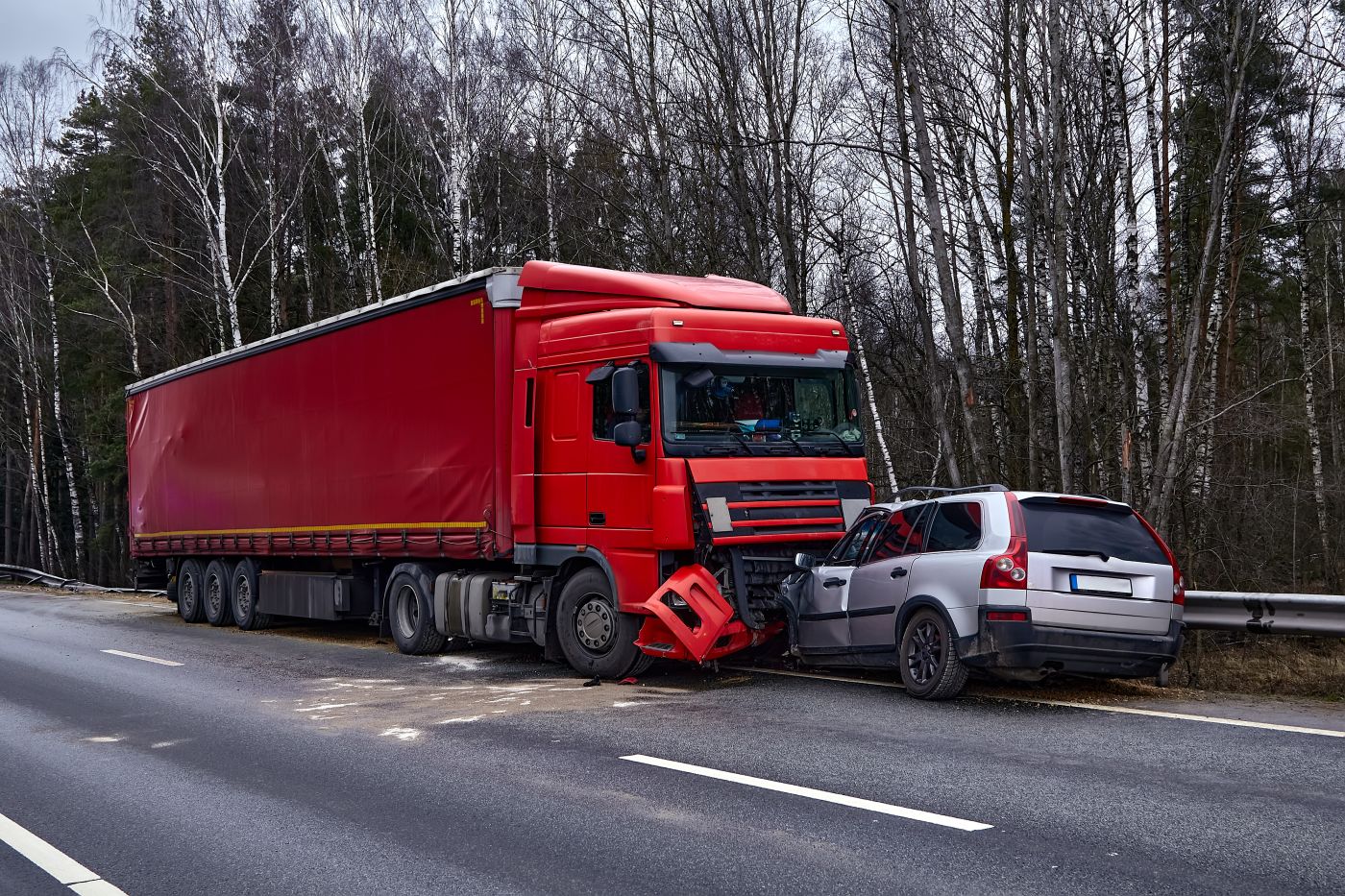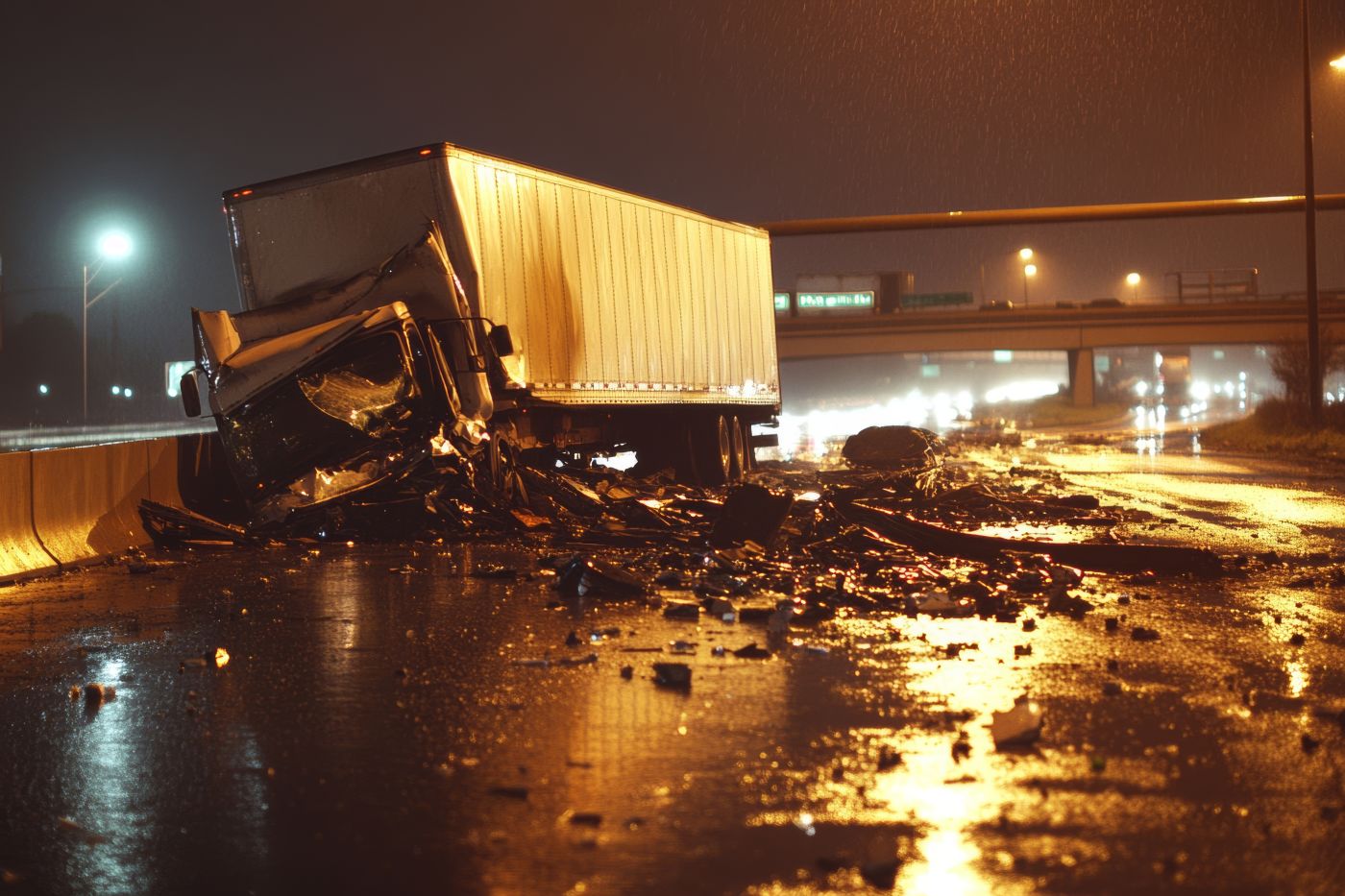
Holding the responsible party accountable through a wrongful death claim can provide both justice and financial relief. Proving liability in these claims requires more than just showing that someone made a mistake—it necessitates building a solid case with evidence, facts, and a clear legal strategy.
At Harris & Hart Attorneys at Law in Overland Park, Kansas, the attorneys understand how devastating it is to lose a loved one in a car or truck accident. When that loss is caused by someone else's careless or reckless actions, the grief is often accompanied by frustration, confusion, and a need for answers.
Read on to learn how wrongful death claims are proven and what you need to do to protect your rights.
Reviewing Wrongful Death and Liability
Wrongful death occurs when someone’s negligent or wrongful conduct leads to another person’s death. In car and truck accidents, this often involves speeding, drunk driving, distracted driving, or commercial vehicle violations.
To bring a successful claim, the surviving family members—or the estate—must prove that the at-fault party acted negligently and caused the fatal crash. That means establishing liability with strong evidence and legal reasoning.
Each case is different, but the legal standard for negligence generally requires proving four key elements: duty, breach, causation, and damages.
Proving Duty of Care and Breach
Every driver on the road has a duty to operate their vehicle safely and obey traffic laws. In wrongful death claims, the first step is showing that the person who caused the crash owed that duty to the victim.
For example, commercial truck drivers are held to strict safety standards under federal and state law. If they failed to follow hours-of-service rules or skipped routine maintenance, that could be a breach of duty.
Proving breach often involves showing that the driver acted carelessly or recklessly. This might include actions like texting while driving, speeding through a red light, or driving under the influence.
Once a breach has been identified, the next step is proving that it directly caused the fatal accident.
Connecting the Breach to the Death
Causation is one of the most contested parts of a wrongful death case. Even if a driver broke the law, it doesn’t automatically mean they’re responsible for the fatal outcome.
The goal is to show a clear and direct link between the driver’s negligent behavior and your loved one’s death. This often requires witness statements, accident reconstruction, and medical reports.
Opposing parties often attempt to argue that other factors contributed to the crash, such as road conditions or the actions of the deceased. That’s why it’s important to build a case that makes the connection undeniable.
Establishing causation is just one piece of the puzzle. You’ll also need to gather specific evidence to support your wrongful death claim.
Gathering the Right Evidence
The strength of a wrongful death claim depends heavily on the quality of evidence presented. This includes physical evidence, documentation, and expert analysis.
Some key types of evidence include:
Accident scene photos and videos: These can show vehicle damage, road conditions, skid marks, and debris placement.
Police reports: These often contain observations from officers, preliminary fault findings, and witness contact information.
Eyewitness statements: Independent accounts help support your version of what happened.
Black box data: Most commercial trucks store speed, braking and other crash-related data.
Surveillance footage: Footage from nearby cameras may capture the collision or actions leading up to it.
A wrongful death attorney can act quickly to preserve this evidence before it’s lost, destroyed, or overwritten.
Identifying Who Can File a Wrongful Death Claim
Not everyone can file a wrongful death claim. Each state sets specific rules regarding who qualifies as a “real party in interest,” which often includes close family members or the estate representative.
In most cases, the following people may have the right to file:
Spouse of the deceased
Children of the deceased
Parents of a deceased minor child
Legal representative of the estate
In some states, more distant relatives or financial dependents may also qualify. If you’re not sure whether you can file, a wrongful death attorney can help clarify your options.
Once a claim is filed, attention shifts to determining the amount of damages that may be available.
Calculating Damages in a Wrongful Death Case
Wrongful death claims aim to compensate the surviving family for both financial and emotional losses. The value of these claims can be significant, depending on the facts of the case.
Some common types of damages include:
Funeral and burial expenses
Medical bills incurred before death
Lost income and future earnings
Loss of companionship and emotional support
Pain and suffering of the deceased before death
Calculating these losses isn’t always straightforward. It may require economic experts to estimate future earnings or explain the financial impact of the loss. A wrongful death attorney will work to make sure every aspect of your family’s suffering is considered.
But even with strong evidence and clear damages, you may still face arguments from the defense—especially when commercial vehicles are involved.
Dealing With Trucking Companies
Truck accident wrongful death cases are often more difficult than standard car crash claims. That’s because they may involve large trucking companies with powerful legal departments.
These companies often launch investigations within hours of a crash and work hard to shift blame or minimize liability. You may receive early settlement offers that seem generous—but rarely reflect the full value of your claim.
A wrongful death attorney can help protect you from these tactics by taking over all communication, preserving evidence, and negotiating from a position of strength.
Some key challenges in trucking-related claims include:
Multiple parties may be involved: Liability could extend to the driver, the trucking company, maintenance providers, or manufacturers.
Federal safety rules: Trucking companies must follow regulations that govern driving hours, inspections, and vehicle maintenance.
Complicated insurance structures: Commercial trucks are often covered by multiple policies, making it more difficult to determine the available coverage.
Understanding these hurdles will help you prepare for the legal process ahead, including the possibility of going to trial.
Preparing for the Possibility of Trial
While many wrongful death claims are resolved through negotiation, some do go to trial.
Preparing for trial involves months of work: discovery, depositions, expert witness analysis, and court filings. A wrongful death attorney handles this preparation while keeping you informed about your options at each stage.
Trials can be emotional and stressful, but they also offer the chance for full accountability. Juries have the power to award significant compensation if they believe the defendant acted with gross negligence or misconduct.
Avoiding Mistakes That Could Hurt Your Claim
Wrongful death cases are emotionally charged, and it's easy to make decisions based on grief or pressure. Unfortunately, even small missteps can have major legal consequences.
Some key things to watch out for include:
Talking to opposing parties: Avoid giving statements without your attorney present.
Posting on social media: Online posts can be used against you, even if you think they’re harmless.
Missing deadlines: Statutes of limitation vary by state and are strictly enforced.
Settling too early: Fast settlements often mean lowball offers that don’t reflect the full extent of your loss.
Working with a wrongful death attorney helps you stay focused and avoid these pitfalls as you move forward in your claim.
Building a Legal Strategy That Works
Every wrongful death case requires a tailored approach based on the facts, evidence, and parties involved. Your attorney will review every detail to craft a plan that fits your goals.
That plan may involve negotiations, mediation, or trial preparation, depending on the response from the defense. In truck accidents, this might also include filing preservation letters, hiring reconstruction experts, or subpoenaing company records.
A strong legal strategy is proactive, not reactive. It anticipates challenges and responds to them with clarity and purpose. That’s the kind of representation a wrongful death attorney should offer.
Proving Liability Step by Step
Successfully proving liability in a wrongful death case means showing, with clarity and evidence, that the at-fault party’s actions led to the fatal crash. This requires a step-by-step process.
Some essential parts of that process include:
Establishing negligence: Prove that the driver or company had a duty of care and violated it.
Showing causation: Link the violation directly to the death with physical evidence and expert opinions.
Presenting damages: Demonstrate the financial and emotional losses suffered by the survivors.
Countering defenses: Be prepared to address blame-shifting or arguments about comparative fault.
Maintaining documentation: Keep all records organized, from crash reports to medical bills and witness interviews.
Each of these steps plays a crucial role in proving your case. With help from a skilled wrongful death attorney, you can build a claim that honors your loved one’s memory and holds the right people accountable.
Experienced Legal Advocacy
If you’ve lost a loved one in a car or truck accident, the attorneys at Harris & Hart Attorneys at Law are here to help you pursue justice. Harris & Hart Attorneys at Law guide families through the legal process with compassion and clarity while fighting to hold the responsible party accountable.
Located in Overland Park, Kansas, the firm serves clients throughout Kansas and Missouri. Call today to speak with an experienced wrongful death attorney who’s ready to protect your rights and help you move forward.



